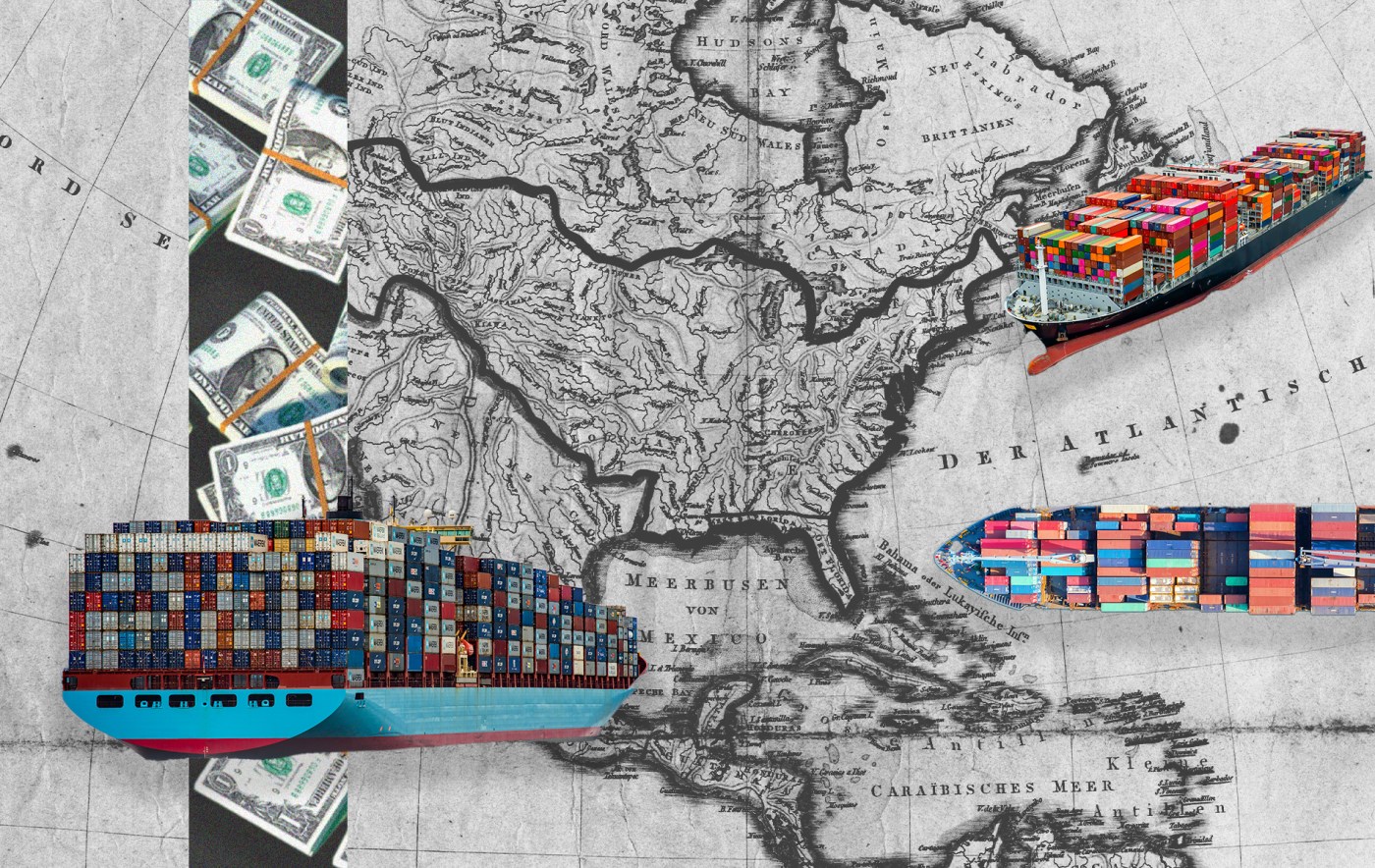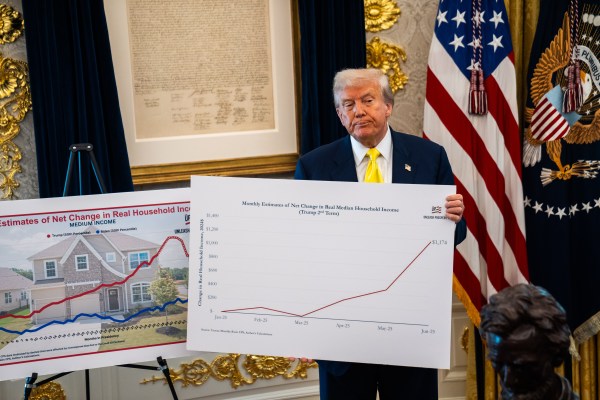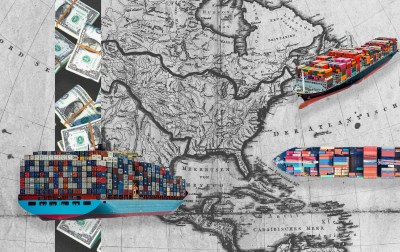When Dan Turner of Turner Hydraulics ordered a custom product for a U.S. steel mill from a Chinese manufacturer back in January, he was expecting to pay a 25 percent tariff on the $49,000 product when it arrived this spring at a port in the United States.
But that was before President Donald Trump announced his April 2 “Liberation Day” tariffs on countries around the world—and then subsequently paused most of his so-called reciprocal tariffs while simultaneously escalating his trade war against China.
Just days after the custom product shipped, Trump announced China would face minimum tariffs of 145 percent, but the rate can vary by product. Turner is now expecting to pay significantly more than a 145 percent tariff when the item, currently somewhere on a container ship in the ocean, arrives.
“So we are having to pay an $84,000 tariff on a $49,000 item,” Turner told The Dispatch in an interview. “We’re just hoping either the ship sinks or somebody comes to their senses before it hits the dock.”
Trump insists that tariffs are “going to make our country very rich,” and White House press secretary Karoline Leavitt claimed last month “tariffs are a tax cut for the American people.” But Turner’s story and others like it exemplify the reality that tariffs are indeed a tax paid by Americans—businesses and consumers alike. “It’s going to take away from our resources. We’re going to borrow money from the bank, and that's not what our business plan was for this year. We were planning for growth,” Turner said.
He looked into canceling the order and returning the product to China, but concluded that would cost the company $10,000 more than simply paying the tariff. “It’s not like we ordered a container load of sunglasses, and we can just add $1 on each set of sunglasses. This was completely paid for by both parties before it ever shipped,” he said. The particular product Turner ordered from China is a hydraulic accumulator that can store energy: In case of a power outage, Turner said, a hydraulic accumulator allows steel-mill workers to manually tilt a kettle of molten steel so the kettle isn’t destroyed by the solidifying steel inside.
Turner expects his business will suffer about a $50,000 loss on the transaction. That amount could either pay for an entire annual salary for one employee or cover the “the cost of living increase for all of our employees for the year,” he said. Based out of Carlisle, Pennsylvania, Turner employs 40 people across two hydraulics businesses. Between tariffs and the business climate, he wouldn’t be surprised if layoffs become necessary this year.
Tariff advocates say one of their objectives is bringing back manufacturing to the United States, but with Trump and his top advisers sending conflicting signals about the overall tariff rates and how long they will last, it’s hard to imagine many businesses will make long-term plans to build new manufacturing plants in the United States based on the new tariff regime. “Hydraulic accumulators use a steel shell that used to be made in the United States, and now it’s very difficult, if not impossible, to find any U.S. made shells,” Turner said. “So we’ve been working with some Chinese companies. It’s not my preference, but I didn’t really have a choice.”
Turner, who voted for Trump in the crucial battleground state of Pennsylvania last November, said his view of the president has soured. “You could say I support President Trump because I voted [for him], but I would say that I’ve always kind of questioned how much strategy he uses versus bravado,” he said. “And I think this whole tariff thing has answered that question.” Turner isn’t alone: Polling shows that majorities of Americans oppose Trump’s tariff policies, and a Gallup poll released this week found that 89 percent of Americans thought tariffs would increase prices.
Another Pennsylvania businessman, Franco Salerno, spoke to The Dispatch this week about how the new tariffs are hurting the bridal store he’s owned and operated with his wife for 12 years.
“This week, we lost our first bridal sale because a bride who was considering a dress a month or two ago came back and said, ‘I want to say yes to this dress, but now it’s $534 more, and I can’t afford that,’” Salerno said.
“The tariffs—they’re on, they’re off, it’s really tough,” Salerno added. “Most wedding dresses come from China. Some come from Indonesia; some come from Vietnam [and] Sri Lanka.” He and his employees spent so much time changing price tags and reprogramming the cash register that they “just created a surcharge based on the weighted-average the [dress] designer is charging us.”
The Salernos’ shop in Warrington, Pennsylvania—Darianna Bridal & Tuxedo—has seven full-time employees and nine part-time employees. “We can already see cashflow going down,” Salerno said, adding that the business is going to have to eat the cost on dresses that were sold at prices before the tariffs were announced. “The bride often comes out eight to 12 months before the wedding to look for her dress. … It takes three to five months for the dress to come in. I just sold several hundred dresses before the tariffs were in place, but the tariff doesn’t get charged until the thing ships.”
“We’re going to take a serious haircut,” Salerno said.
He declined to say how he voted in November but described himself as “a middle-of-the-road guy. I’m actually an independent. I vote based on the issues, not on the party.”
“My view is there was a better way to do this,” Salerno said of Trump’s trade war. “It’s going to hurt consumers, and it’s going to hurt the country as a whole.”
Mary Gordon, the co-owner and president of Central Safety Equipment in New Jersey, heartily concurs with that assessment. Her company employs 32 people and manufactures devices that protect machines from catching fire—everything from machine tools and automotive industry equipment to robotics, 3D printing, and more. “We manufacture everything here,” Gordon told The Dispatch, but the tariffs “increased the cost for anything that we have to import. And we do have to import some of our raw materials because they’re not available in the United States anymore.”
“Where we can source from the United States, we prefer to use local suppliers wherever possible,” she said.
While Gordon stocked up on materials in anticipation of the trade war, that stockpile can only last so long, and she eventually expects a 7 percent increase overall in the cost of raw materials. But her biggest concern about the trade war is dampening sales, particularly in other countries. “Our overseas customers are looking for more domestic suppliers for them,” she said. “It’s a domino effect. It’s not just one little isolated incident. It impacts every aspect of the business.”
Gordon spoke to The Dispatch on Tuesday morning, shortly before White House press secretary Karoline Leavitt accused the multibillion-dollar business Amazon of engaging in a “hostile and political act” by reportedly considering listing the cost of tariffs on certain products. Hours after Leavitt’s rebuke, a cowed Amazon spokesman issued a statement saying the idea was considered but “was never approved and is not going to happen.”
Asked if there was one message she could send to Trump and his economic advisers, Gordon told The Dispatch: “If you’re a billionaire, you can probably weather this really easily. Those of us who are down in the trenches that are making sure their employees have a paycheck every week are really going to be suffering.”







Please note that we at The Dispatch hold ourselves, our work, and our commenters to a higher standard than other places on the internet. We welcome comments that foster genuine debate or discussion—including comments critical of us or our work—but responses that include ad hominem attacks on fellow Dispatch members or are intended to stoke fear and anger may be moderated.
With your membership, you only have the ability to comment on The Morning Dispatch articles. Consider upgrading to join the conversation everywhere.